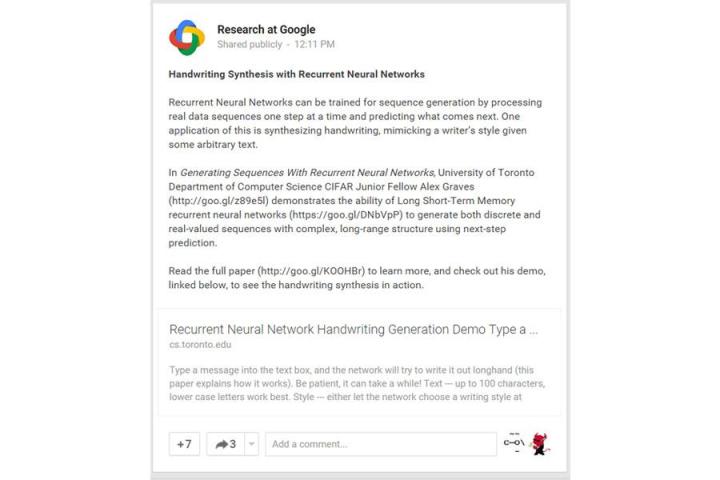
Originally publicised by Google’s Research division in a blog post and social media update, but then removed (as per TomsHardware), the article explained that Graves had used a long short-term memory recurrent neural network to analyze someone’s handwriting and then use prediction to determine how that writing would be continued. With that completed, technically the computer could continue to write as that person, to a high level of accuracy.
Related: Watch this tiny robot drag a 45-pound weight across the floor like it’s nothing
Looking at a simple piece of information and extrapolating that out to much more complex scenarios has a large number of uses, with handwriting synthesis being a prime example. However, the actual replication of a human’s handwriting is not necessarily a useful tool in and of itself, at least not for conducting something above-board. Theoretically, of course, it could be used to falsify documents or to trick people into believing someone they know intimately enough to recognize their handwriting, has contacted them.
Of course this was possible for nefarious humans before now — it just required a lot of time and dedication. Now, however, at least in theory, someone with access to one of these sorts of neural networks could pretend to be anyone from whom they were able to gather enough handwriting samples to source from.
Can you think of any uses for this sort of technology that wouldn’t involve doing something illegal?
Editors' Recommendations
- Google Bard can now speak, but can it drown out ChatGPT?
- You can now collaborate on emails directly in Google Docs
- Google Calendar’s ‘Focus Time’ can now deny unwanted meetings for you
- The Moto 360 and other older Wear OS watches can now download YouTube Music
- You can now ask Google Assistant to tie your shoes with expanded app actions




